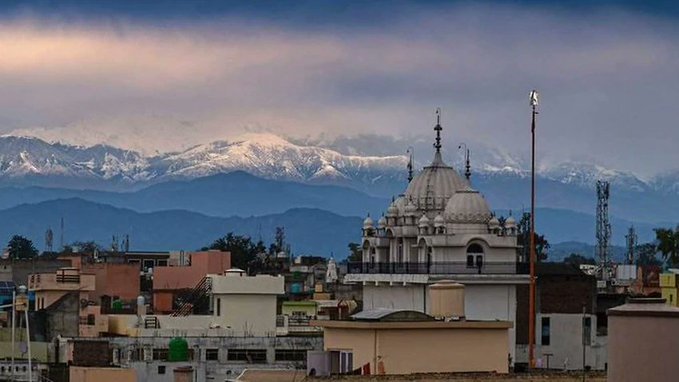A Silver Lining: The Effects of COVID-19 on the Environment and Climate

COVID-19 is a disaster for virtually everyone, from the student struggling to adjust to online schooling, to college students laid off minimum-wage jobs barely scraping by, to the millionaires on Wall Street trying to recoup their losses from the mangled stock market. However, while COVID is steep barrier humanity must overcome, another, even steeper barrier is delayed: climate change. The quarantines that led to online schooling resulted in the decreased productivity that led to the laid-off worker and the scrambling millionaire also decreased air and marine pollution. The same effect has been observed in pandemics as early as the 14th century. As travel of any sort is now heavily discouraged, even banned in some areas, the air is no longer polluted by millions of automobiles, planes, and oil refineries. China, famous for both its high levels of pollution as well as its extremely strict quarantines, experienced a 25-40% reduction of carbon and nitrous oxide emissions.

https://en.wikipedia.org/wiki/Impact_of_the_COVID-19_pandemic_on_the_environment Images from the NASA Earth Observatory show a stark drop in pollution in Wuhan when comparing NO2 levels in early 2019 and early 2020 (Bottom).
https://www.esquireme.com/content/45334-the-himalayas-are-visible-from-india-for-the-first-time-in-30-years-because-of-covid-19-lockdown The lower concentration of pollutants also makes for far better visibility, and the Himalayas, hidden by pollution for 30 years, can be seen.
Due to decreased productivity and incomes, the demand for fish has dropped sharply, and stocks of many fish are slowly increasing. As more people quarantine, animals again frequent places they once avoided, as there are less human interference and pollution. For instance, turtles have been reported laying eggs on the shore of the Bay of Bengal, monkeys stampede in search of food formerly given by tourists in Thailand, and deer in Japan are venturing into the city eating flowers and plants, as there are fewer people in parks feeding them.

https://www.weforum.org/agenda/2020/04/coronavirus-animals-wildlife-biodiversity-tiger-boar-pandas-zoos/ The Wildlife Conservation Society is urging an end to wildlife trade.
However, all swords are double-edged. Nature has taken a hit in some areas as well: chaos has provided cover for loggers deforesting the Amazon rainforest, of which there was a 50% increase in; with no other means of income, conservationists predict that many will turn to poach endangered animals in Africa for high-value items such as ivory and rhino horn; neglect has caused many oil wells and pipes to leak, and economic fallout makes investing in cleaner energy impractical. Due to low prices, natural gas has become so cheap that it is burned off on-site, as it was cheaper than transporting it to refineries. As farms are relatively untouched by COVID due to their isolation from major city centres, methane emissions, which are far worse than carbon dioxide, continue to increase. Mask wearing also had the side effect of producing millions of tons of plastic pollution.

https://unctad.org/news/growing-plastic-pollution-wake-covid-19-how-trade-policy-can-help Used masks littered in the ocean, possibly endangering wildlife.
All of this is to say, while COVID is in no way a positive influence, we can appreciate that an arguably-larger concern of humanity can be pushed back a deadline.